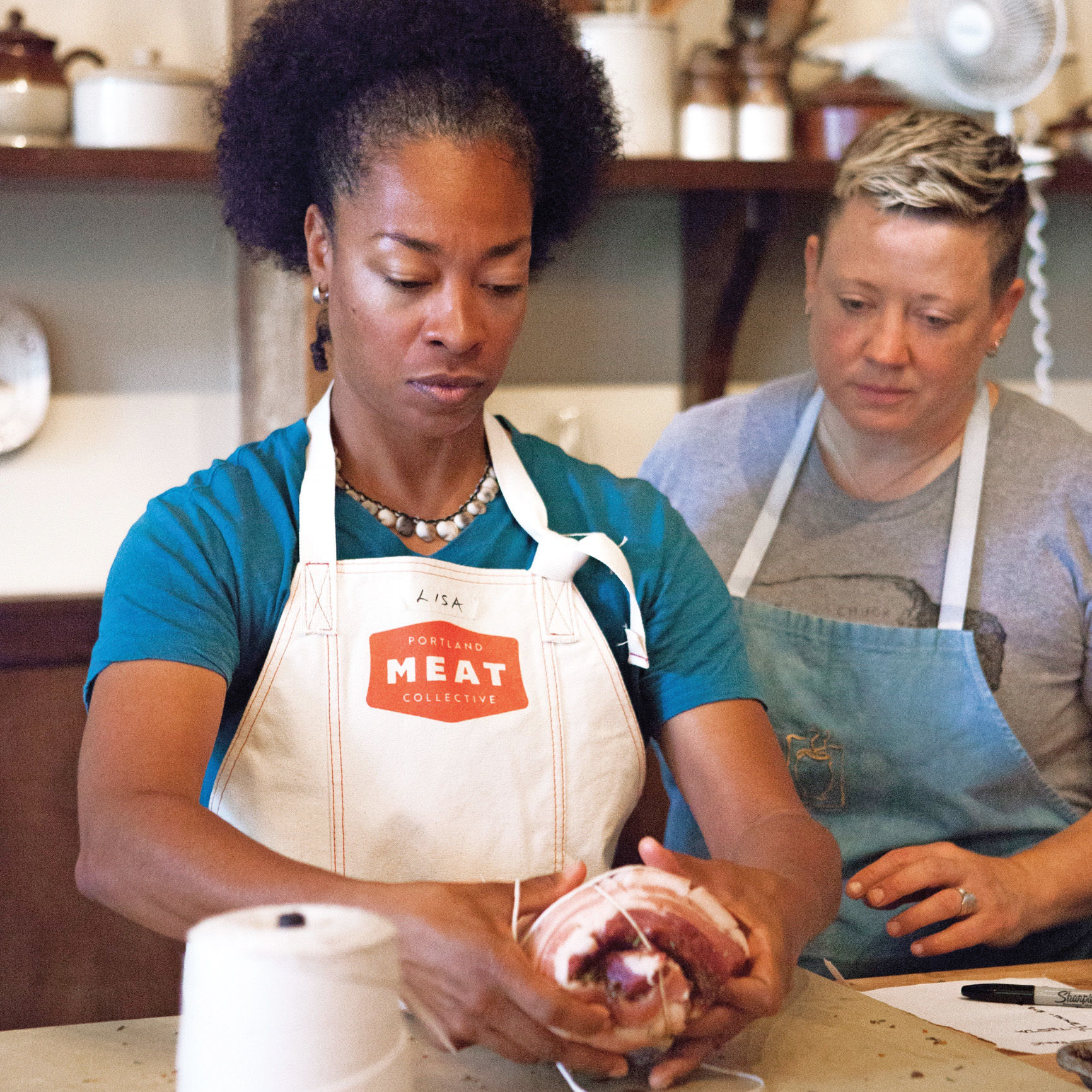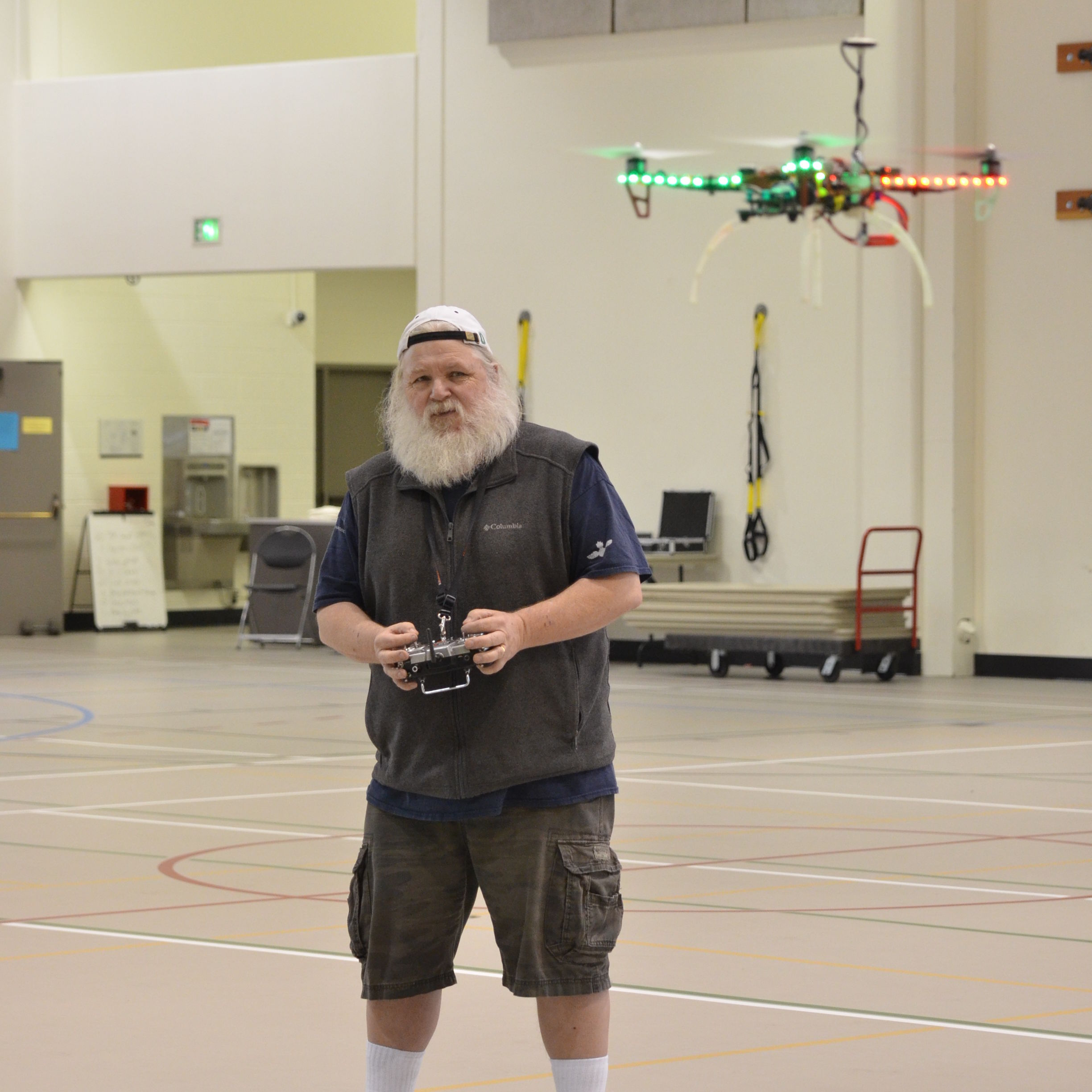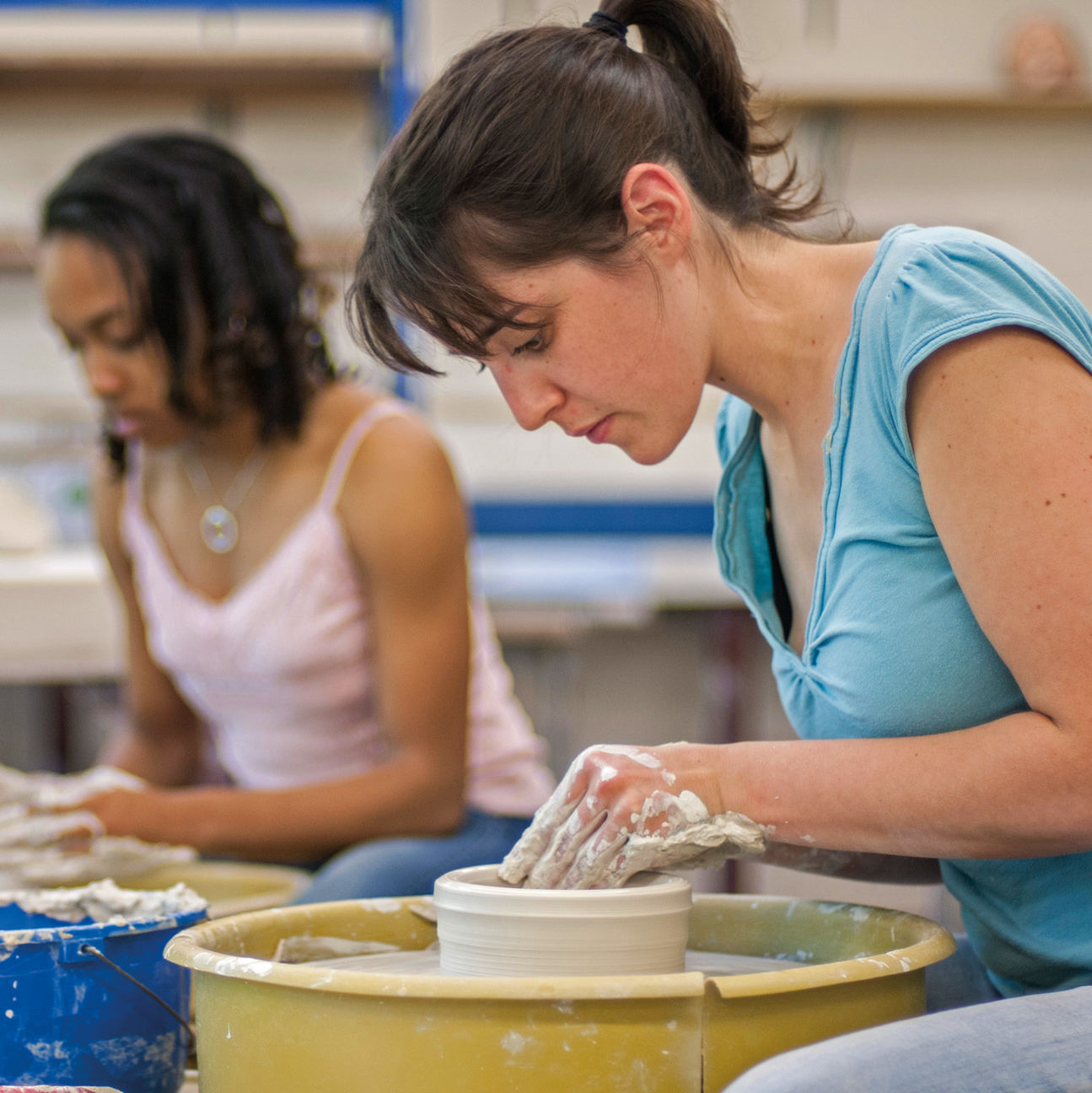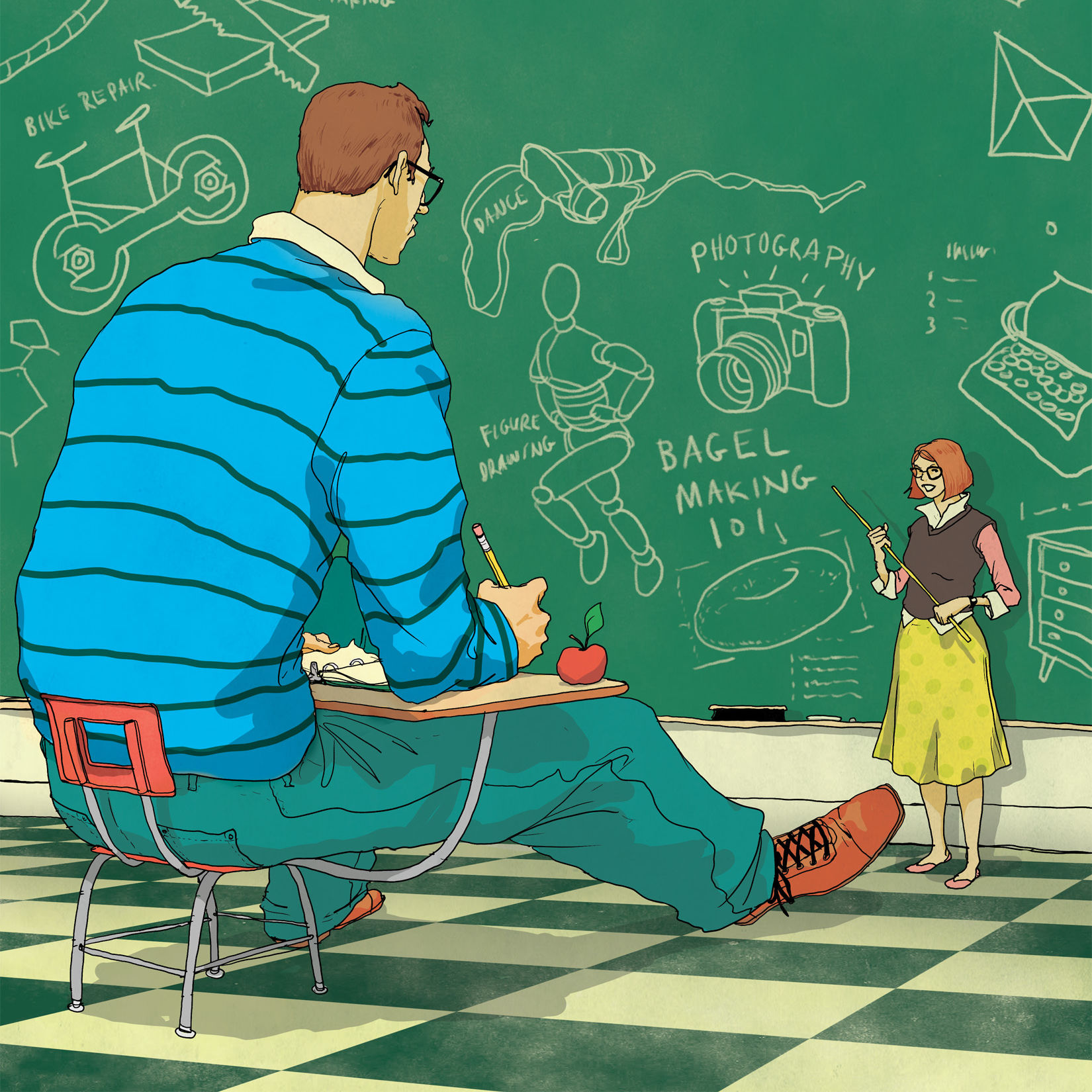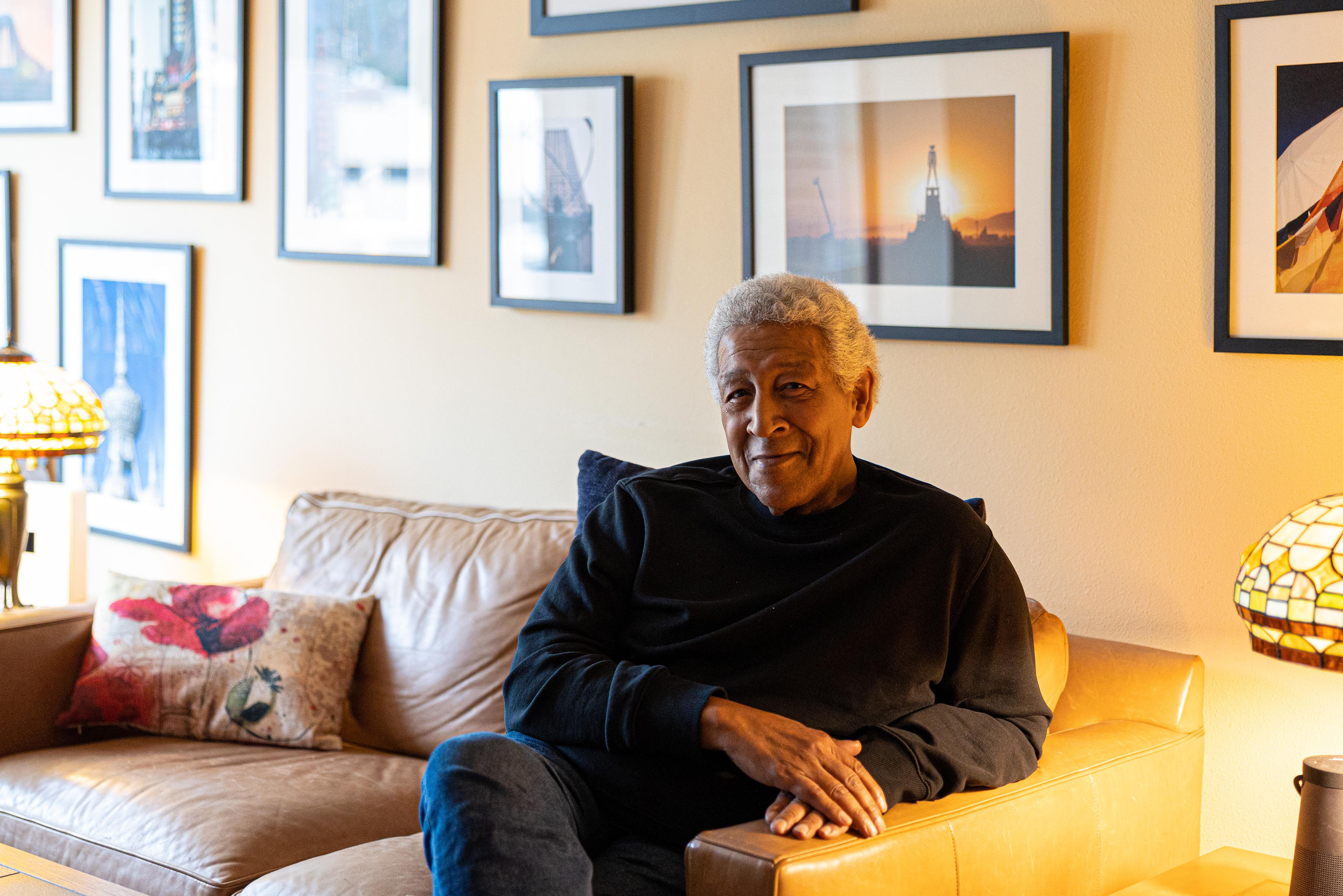How a Class Designed for Low-Income Portlanders Changed One Mind—and Life
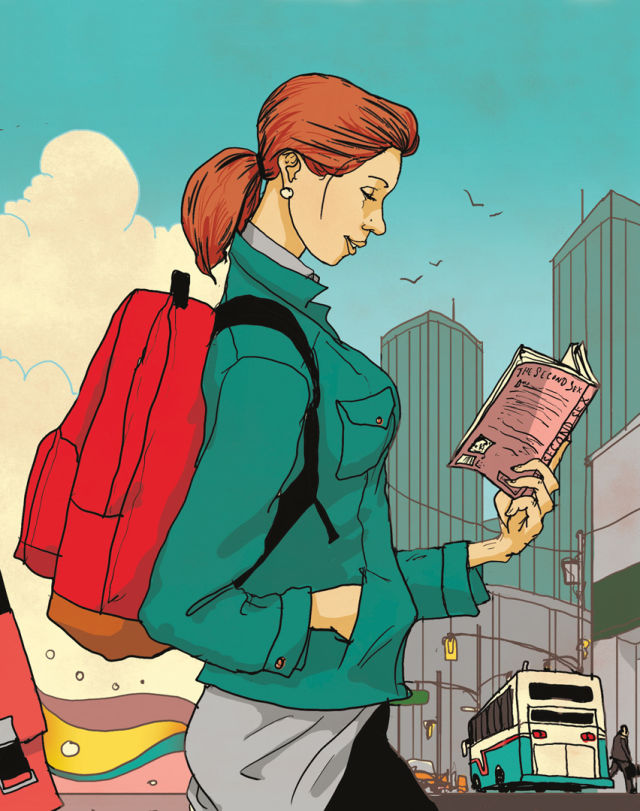
Image: Michael Byers
“I’ve had a rough life,” says Mary Thompson, by way of introduction. She means it: she left home at 13, didn’t finish high school, fought health problems due to an undiagnosed birth defect, and weathered a decade-long divorce process. But last year, on a tip from a friend of a fellow member of the Native American community, she enrolled in Humanity in Perspective, an eight-month, college-level course for low-income adults without a college degree. The course, run by the nonprofit Oregon Humanities with support from other institutions, had a profound effect—Thompson is now a full-time student at Marylhurst University, pursuing her dream of becoming a writer.
Here's what she had to say about her experiences:
In the 1960s, when I went to school, they knew I was the youngest of 10. So it was like, another one? I didn’t participate. I sat in the back of the room. I had one teacher tell me, “You can pass for white. Don’t tell anybody you’re Indian.”
When I first met Kyle [Weismann-Yee, HIP program coordinator], his only question to me—it might be because of my age—was how accepting I was of other types of people, races, and sexualities and stuff. And I said, “I’m Native, honey. We were fine with cave people when everybody got off the boat. We were already rockin’.”
It was all types of people, all different ages, different races, different sexual orientations. That was one of the things that drew me. There was no competition—
it was about the whole class learning experience.
The literature was a blast. That’s right up my alley. We read Benito Cereno [Herman Melville’s novella about a revolt on a slave ship]. I read that sucker like five times. I found it really interesting, because it talks about the church’s responsibility in slavery and social inequality and class. We talked a lot about justice, a lot about social problems and history. We talked about Socrates, and I called him the absent father in the truck—supposed to be responsible, but he went this other way in the search for knowledge. Because I’m Native, I probably had a blind spot growing up and didn’t want to listen to all of these white guys.
People changed. When you look at real American history—not what they teach in high school—you get a better sense of just what we’ve been through. People spoke. And the more people spoke, the more people spoke up. Mostly we listened to each other. We respected each other, too.
I had horrible anxiety about writing. But the writing instructor just took you where you were at. All the pressure was off. And this funny thing happened and I realized how much I already knew. I realized my history meant something. It helped me start to dream again. I’m a 56-year-old disabled woman, going to school to have a new life. It’s a kick in the pants. I shouldn’t even be alive, but I’m here and I’m gonna take a piece of this life.
Humanity in Perspective
Eight-month course for low-income adults without a college degree.
Applications due end of July; course runs September–April.
With successful completion, students earn six transferable credits.
Free!



